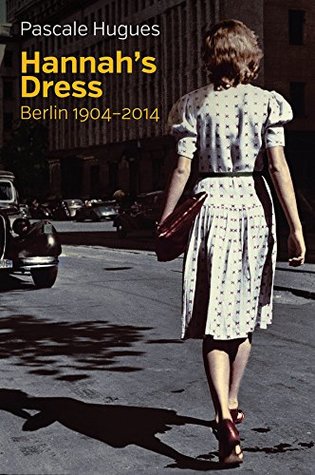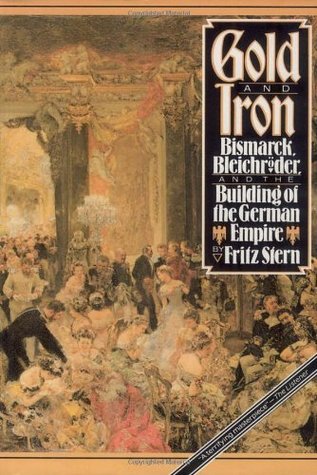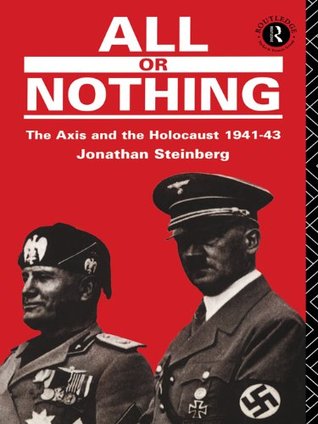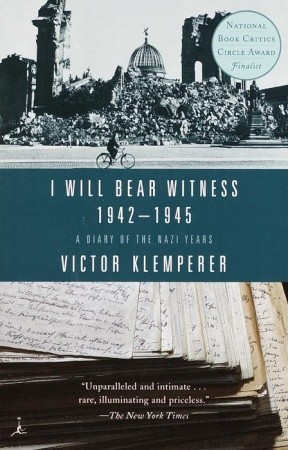Read & Watch
Every year, we compose a list of websites, books, films, and podcasts for our Summer Academy participants. Naturally, we know how busy you are, but we promise that any time spent with these publications, films and podcasts will greatly enrich your visit.
Please keep checking for updates, as we add to the list continually.
– Your Centropa Team
Recommended Books
History

“Hannah’s Dress” by Pascale Hugues
Winner of the 2014 European Book Prize when it was published in French, journalist Pascale Hugues (Liberation, Le Point) tells the story of a single street in Berlin (the book is now available in German and English and translated into English by Nick Somers and C. Jon Delogu). From the day the street was completed in 1904 until much of it was bombed during the Second World War, from its rebuilding in the post-war years until the 2000s, Hugues introduces us to individuals who color in what history did to them and their families. It’s all here, from neighbors donning brown shirts and marching through the street in 1933 to Russian soldiers raping housewives in doorways in 1945. Two young Jewish friends, Susanne and Hannah, tried desperately to get away from their street, and from Germany, in 1939. Only Susanne survived and she kept forever the dress Hannah had made for her. It was all that was left of her friend. Highly recommended, and here’s a review by The Irish Times’ correspondent in Berlin, Derek Scally.
(Image: Goodreads)

“Nights in the Big City: London, Paris, Berlin” by Joachim Schloer, our keynote speaker
This elegantly written book describes the changes in the perception and experience of the night in three great European cities: Paris, Berlin and London. The lighting up of the European city by gas and electricity in the nineteenth and early twentieth centuries brought about a new relationship with the night, in respect of both work and pleasure. Nights in the Big City explores this new awareness of the city in all its ramifications. Joachim Schlor has spent his days sifting through countless police and church archives and first-hand accounts, and his nights exploring the highways and byways of these three great capitals. Illustrated with haunting and evocative photographs by Brandt and Kertesz, among others, and filled with contemporary literary references, Nights in the Big City has been acclaimed as a milestone in the cultural history of the city. This new edition features a Preface by Matthew Beaumont, author of Nightwalking: A Nocturnal History of London (Verso, 2015).
(Image: Angus & Robertson)

“The Collapse: The Accidental Opening of the Berlin Wall” by Mary Elise Sarotte
Still convinced that Ronald Reagan and Mikhail Gorbachev brought down the Berlin Wall? Think again. The single best book (that we’ve read) written on the fall of Communism in 1989, Sarotte conducted more than 40 interviews and provides 50 pages of notes in this well-written study that takes us through Budapest, Prague, Leipzig and Berlin. Recent history at its best. The Economist, which named The Collapse one of the best books of 2014, wrote this review.
(Image: Goodreads)

“The Holocaust: A German Historian Examines the Genocide” by Wolfgang Benz
A history of the Holocaust that brings the German perspective into focus. One of the best short studies of the Holocaust that we’ve come across, this book, written by one of Germany’s leading scholars, is concise and to the point.
(Image: Columbia University Press)

“The Fall of Berlin 1945” by Antony Beevor
Antony Beevor is one of our favorite military historians. This work is a companion piece to his Stalingrad, but is a compelling read on its own. The book revisits the events of the Battle of Berlin in 1945, and narrates how the Red Army defeated the German Army and brought an end to Hitler’s Third Reich, as well as an end to the war in Europe.
(Image: Goodreads)

“Weimar Germany: Promise and Tragedy", by Eric D. Weitz
It lasted only fourteen years, but in that time, the cultural output of Weimar Germany changed our world. From architecture to theatre, from painting to literature, from music to philosophy, we have not seen such an outpouring of talent, and by extension, it is hard to even discuss postwar American culture without all that German Jews, fleeing for their lives in the 1930s, brought to it. Eric Weitz is an historian at the University of Minnesota and this is certainly one of the best books written on Weimar’s cultural flowering. Brian Ladd reviewed it in The New York Times.
(Image: Princeton University Press)

"Gold and Iron", by Fritz Stern
Published in 1977, this would be Stern’s masterwork, and it tells the story of Otto von Bismarck, the monumentally ambitious Chancellor of the Second German Reich, and Gerson von Bleichröder, the Jewish banker who helped make those ambitions come to life. Beautifully written in a style that reminds us of one of the great 19th century novels, this work of history covers their trajectory of Bismarck and Germany, as well as Bleichröder’s upward path; he was, in fact, the first Jew in Germany to be ennobled. You find a review about the book here.
(Image: Goodreads)

"All or Nothing: The Axis and the Holocaust", by Jonathan Steinberg
First published in 1990, this unique study is well worth your time. Steinberg compares how the German and Italian armies (and the SS) behaved in the theaters of war that they both shared—Yugoslavia, Greece and France—and how they reacted toward the Jews they found there. His findings make for harrowing reading and he poses this question: “Why did the Nazi regime murder millions of Jews?” and “…why did some Italian diplomats and soldiers save Jews at a certain time and place while their German colleagues helped to murder them?” True, more Italians could have done more; not all Germans in uniform acted despicably. But in these 244 pages (plus another hundred of notes), Steinberg presents a damning verdict and a fascinating read. You find a review here.
(Image: Goodreads)

“The Pity of It All” by Amos Elon
A portrait of the German-Jewish epoch written by a Vienna-born Israeli journalist, this is a fine work of history centering on the Enlightenment, on Europe, and on anti-Semitism. It traces Europe’s Jews from their humble origins as wanderers and cattle-herders to their intellectual apex in the 20th century, bringing 200 years of German-Jewish history to life in the process.
(Image: Macmillan Publishers)
Memoirs & Biography

“Gone to Ground: One woman’s extraordinary account of survival in the heart of Nazi Germany” by Marie Jalowicz Simon
On the 26th of December, 1997, the historian Hermann Simon sat down at the table in his mother’s apartment, showed her a cassette recorder, and said, “You’ve always been meaning to tell your story—go ahead.” And thus Marie Jalowicz Simon, a 76-year old retired professor of classical antiquity, began to record her wartime story. Neither mother nor son knew it then, but Marie was in a race with time, a race she would lose ten months later. Hermann had the tapes transcribed—900 pages of them, and then began editing what would become the award winning Untergetaucht in German, and Gone to Ground in English, which was very well translated by Anthea Bell. “… a memorably good book, and Jalowicz’s voice – perceptive, humane, determined – comes across on every page,” wrote the historian Caroline Moorehead in The Guardian.
(Image: Amazon UK)

“Defying Hitler” by Sebastian Haffner
Written in 1939 but not published until after Haffner’s death, this book spent 42 weeks at the top of the best-seller list. Haffner turns his gaze to German society right in the eye of the storm and explains how so many of his fellow citizens “went along to get along”. He was so prescient that many Germans insisted he must have written it after the war rather than in the era itself. Elegant, short, well-written, and well-translated.
(Image: Macmillan Publishers)

“Five Germanys I Have Known” by Fritz Stern
In this mixture of history and memoir, Fritz Stern examines Germany throughout its various 20th century incarnations by the medium of his personal experience. He demonstrates that the history of modern Germany offers lessons of political responsibility to citizens everywhere. A highly acclaimed work from a well-known German-Jewish scholar.
(Image: Macmillan Publishers)

“Dietrich and Riefenstahl” by Karin Wieland
Two of the great cultural icons of the first half of the 20th century. Marlene Dietrich cast her spell on Weimar Germany in the early 1930s, then became even more popular when she moved to Hollywood, where she savaged Hitler’s Germany relentlessly. Leni Riefenstahl also made her name on the silver screen—by making some of the most artistic propaganda films ever made—for the Nazis. After the war, Riefenstahl’s name was ruined; Dietrich could not comfortably return home. At 600 pages, it’s a door stopper, but has been brilliantly translated into English by Shelley Frisch and we highly recommend it. Read a review by Michael Sragow in The Washington Post.
(Image: Goodreads)

"I Shall Bear Witness", The Diaries of Victor Klemperer, Volumes One and Two
In 1995, the Berlin-based Aufbau Publishers, which had been an East German house that was now struggling to survive in capitalist Germany, brought out the diaries of a Jewish academic who had survived the Second World War in Dresden. They had no idea that Klemperer’s diaries would become a publishing phenomenon and a best seller, so much so that in large cities and small towns, people gathered in bookshops to hold all night readings. Caring mostly about his cats, afraid to get a driver’s license (which is then taken away from him by the Nazis) and a genuine hypochondriac (who lived to the age of 79), Klemperer also lets it be known that he is a true German; the Nazis simply aren’t. In clear, concise prose (ably translated by Martin Chalmers) Klemperer records the loss of his rights, the insults, the fear, but also how some neighbors did not turn away. Klemperer never wrote these diaries to be read by anyone else, yet they are well worth spending your time with. Here’s a link to Richard Bernstein’s review of Volume One.
(Image: Goodreads)
Fiction

“The Wall Jumper” by Peter Schneider
Written in 1983, Schneider correctly predicted that “the wall in the head” of each German would take longer to tear down than the concrete one that divided the city. This book chronicles Berliners who physically defy the wall by jumping over it, contrasted with those who can no longer transcend the wall in their own heads to see commonality with other Germans.
(Image: Goodreads)

"The Emigrants", by WG Sebald
You have never read anything quite like this, and Sebald is now considered one of the greatest novelists to have been published since the Second World War. Born in Bavaria in 1944, Sebald moved to England and was a professor of literature at the University of East Anglia. The Emigrants was first published in German in 1992, then in English in 1996. He was to write only a handful of other novels and books of poetry by the time of his untimely death six years later. As Andre Aciman wrote, “In Sebald’s tales the Holocaust doesn’t just continue to haunt its survivors, it does something worse: it hunts them down, the way World War II, or World War I, for that matter, is always just behind those who survived it.” Here is Eric Homberger’s obituary in The Guardian for Sebald.
(Image: Goodreads)

“The reader” by Bernhard Schlink
Berhard Schlink’s The Reader met with much success in the US and in Germany. Serious literary reviewers ripped it apart as a thinly veiled attempt to paper over the sins of the past. We did not see that. This is a compelling read that delves deeply into the nuances of Germany’s coming to terms with the past.
(Image: Goodreads)

"Alone in Berlin", by Hans Fallada
Surely one of the most memorable novels you’ll ever read. Fallada (real name: Rudolf Ditzen) was a writer, drug addict, inmate in insane asylums, sometimes petty criminal, and at the close of World War Two, a policeman in Berlin told him the story of a married couple who had left postcards around Berlin condemning the Nazis. Around this conversation Fallada constructed his own world of neighbors, policemen, bystanders and thugs and in eight weeks, he had his novel finished. The result is a harrowing, brilliant read. The book became an instant best seller in Germany, but Fallada, like one of his luckless characters, had died just before it was released. Very well translated by Michael Hofmann and here is the late poet Helen Dunmore’s insightful review.
(Image: Amazon)
Recommended Films

“A Coffee in Berlin” (2012)
A Coffee in Berlin follows a young slacker just trying to get a cup of coffee. It was shown in 20 film festivals in 2015. You really do feel for him. Here’s the trailer. It’s available for rent on iTunes.
(Image: IMDB)

“M” by Fritz Lang (1931)
Fritz Lang’s masterpiece from pre-World War II Germany stars Peter Lorre as a child murderer. The sets are remarkable–many of them shout Bauhaus–the cinematography is excellent. It is also one of the first films to deal with obsessions and compulsions. Because the Berlin police harass the entire criminal community of the city, it is the thieves, beggars and swindlers who hunt down the killer–and then try him. During his trial, Lorre screams, “You know why you do what you do. I don’t know why I do these things.”
View the full film here on InternetArchive.org (in German).
(Image: Wikipedia)

“Good Bye, Lenin!” (2003)
A tragi-comedy of sorts, a two-hankie weepie, and without spoiling the fun, we can tell you this. It is in 1989 and the Berlin Wall still stands. Christiane is a hard line believer in the one party state. At a rally, she sees her son Alex protesting against the regime, has a massive stroke and wakes up eight months later. While the GDR collapses around them, Alex tries to keep the illusion of it alive for the sake of his mother’s health. This movie became one of the country’s biggest hits. And you thought Germans had no sense of humor.
(Image: Wikipedia)

“Frederick the Great and the Enigma of Prussia”, BBC documentary by Christopher Clark (2011)
Podcasts and other resources
Germany: Memories of a Nation is a BBC podcast that gives a comprehensive overview of Germany’s history. While every episode is worth a listen, we strongly suggest you download “The New German Jews“, “The View from the Gate“, and “Bauhaus: Cradle of the Modern” in preparation for #CSA18.
Chronik der Mauer gives an in-depth, interactive timeline of the Berlin Wall, for those needing to brush up on their Cold War history!
On June 15, 1961 the head of the East German state, Walter Ulbricht, responded to rumors that the GDR was planning to close its borders with the emphatic statement: “Nobody has any intention of building a wall!” A matter of weeks later, construction on the Berlin Wall started, proving this statement to be a lie. Video of the statement can be seen on this website, which also has many other multimedia resources for German Cold War history.
The View from the Gate
The New German Jews
Bauhaus: Cradle of the Modern
Websites you’ll want to follow
Der Spiegel in English. One of the most authoritative news sources in Germany. You’ll want to keep up with what they say.
DW—Deutsche Welle. A comprehensive website in English funded by the German government, but these guys pull no punches. We suggest you keep up to date and subscribe.
Several newspapers and news services update their German coverage regularly:
Here is The Guardian’s Germany page.
The Economist covers Germany thoroughly.
We also like The Financial Times’ coverage of Germany.
Country information on Germany:
Here is the BBC’s profile on Germany. You’ll find it useful.
The CIA publishes an online Factbook, and here is their profile on Germany.
What’s all this about?
Contact Us
+43 1 4090 971
office@centropa.org